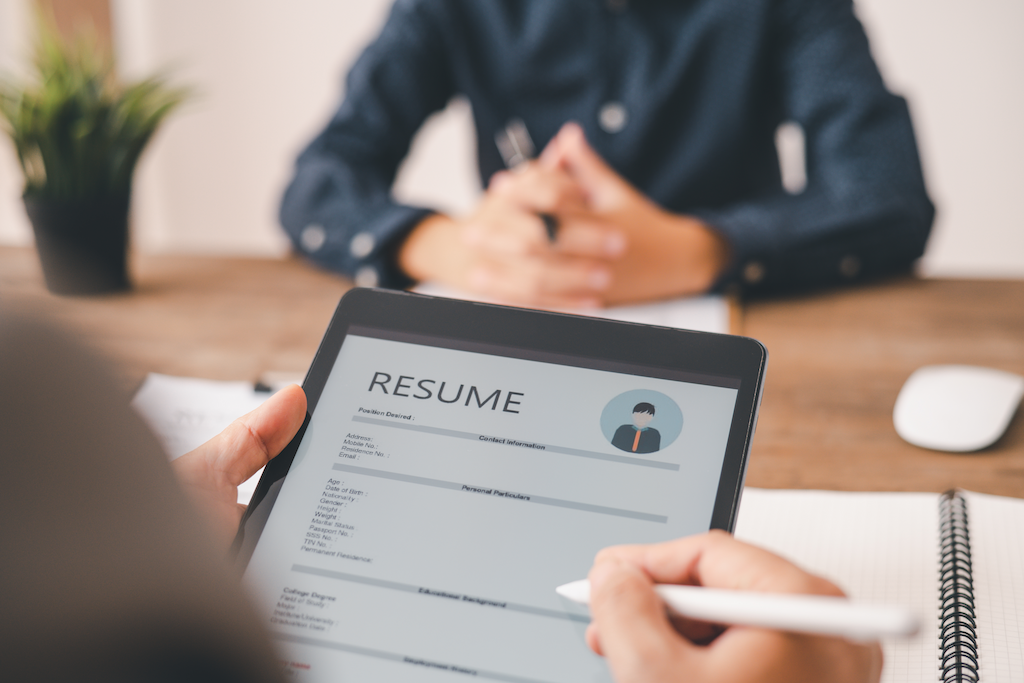When you go for a job interview, first impressions are everything. It’s not just about your skills and experience—hiring managers also pay attention to how you present yourself. That’s where interview etiquette comes in. The way you dress, speak, and interact with your interviewer can make a big difference in whether you get the job.
In this guide, you’ll learn the key interview etiquette rules to follow so you can feel confident, make a great impression, and increase your chances of landing the job.
What is Interview Etiquette and Why Is It Important?
Interview etiquette is the way you present yourself and communicate during a job interview. It includes how you speak, listen, and interact with the people you meet. Employers pay close attention to these details because they want to hire someone who acts professionally and shows respect. The way you handle yourself in an interview gives them a glimpse of how you might behave as an employee.
Following proper interview etiquette helps you create a strong and positive impression. It’s not just about answering questions well but also about showing confidence, professionalism, and good manners. Employers appreciate candidates who are well-prepared, listen carefully, and communicate clearly. Even small things, like the way you introduce yourself or how you respond to questions, can make a big difference.
By showing good etiquette, you prove that you take the interview seriously and respect the interviewer’s time. This makes you stand out from other candidates and increases your chances of getting hired. A professional and respectful approach can leave a lasting impression and make employers feel confident about offering you the job.

15 Essential Job Interview Etiquette Rules to Follow
Making a strong impression in a job interview isn’t just about your skills. The way you present yourself, communicate, and engage with the interviewer plays a crucial role in their decision.
To help you put your best foot forward, here are the key etiquette rules that showcase professionalism, build rapport, and increase your chances of success.
1. Arrive Early and Be Prepared
Punctuality is key. Arriving 10–15 minutes early gives you time to settle in, review your notes, and show that you’re reliable. If it’s an in-person interview, plan your route ahead of time and consider parking options. For virtual interviews, check your internet connection and test your microphone and camera to avoid technical issues.
2. Dress Professionally for the Company Culture
Your outfit should match the company’s dress code. A corporate job may require formal business attire, while a startup might allow a more relaxed look. When in doubt, it’s better to dress slightly more formal to show professionalism. Looking polished and put together helps you make a strong first impression.
3. Show Confident Body Language
The way you carry yourself speaks volumes. Sit up straight, make eye contact, and offer a firm handshake (if in person). Avoid slouching or crossing your arms, as these can make you look disinterested. Confident body language shows that you’re engaged and ready to take on the role.
4. Know the Salary Range Before the Interview
Salary discussions can come up, so it’s good to be prepared. Research typical salaries for the role in your industry so you can confidently discuss compensation if asked. Being informed helps you negotiate better and shows that you’ve done your homework.
5. Research the Company and the Role
Before your interview, learn about the company’s mission, values, and recent news. Understand the job responsibilities and think about how your skills align with them. This preparation helps you answer questions more effectively and show genuine interest in the position.
6. Learn About Your Interviewer
If you know who will be interviewing you, take a few minutes to look them up on LinkedIn or the company website. Knowing their background can help you build rapport and make the conversation feel more natural.
7. Stay Focused and Minimize Distractions
Give your full attention to the interviewer. Silence your phone, avoid fidgeting, and stay engaged throughout the conversation. A wandering mind or constant distractions can make you seem uninterested or unprofessional.
8. Make a Strong First Impression
The first few seconds of your interview can set the tone. Greet your interviewer with a smile, use their name, and thank them for their time. A warm, professional introduction helps create a positive atmosphere.
9. Speak Clearly and Listen Attentively
Rushing your words or mumbling can make you hard to understand. Take your time, speak clearly, and pause before answering to gather your thoughts. Also, be an active listener—let the interviewer finish speaking before responding.
10. Stay Calm When Facing Tough Questions
Some interview questions can be tricky, but staying calm is key. If you need a moment to think, take a breath before answering. If a question is unclear, don’t hesitate to ask for clarification. Composure under pressure shows problem-solving skills and confidence.
11. Keep the Conversation Professional
Avoid discussing controversial topics, speaking negatively about past employers, or asking about salary too soon. Keep the focus on your skills, experience, and how you can contribute to the company.
12. Practice Answering Common Interview Questions
Rehearsing answers to common questions can help you feel more confident. Practice out loud or with a friend so you can express your thoughts clearly and concisely. The more prepared you are, the smoother the conversation will go.
13. Treat Everyone with Respect
From the receptionist to the hiring manager, treat everyone you meet with kindness and professionalism. Many companies observe how candidates interact with all staff members, not just the interviewer. A friendly and respectful attitude leaves a positive impression.
14. Stay Positive and Enthusiastic
Even if you’re feeling nervous, maintaining a positive attitude can make a big difference. Employers want to hire people who are excited about the role and the company. Enthusiasm shows that you’re genuinely interested in the opportunity.
15. Follow Up with a Thank-You Email
After the interview, send a thank-you email within 24 hours. Express appreciation for the opportunity, mention a key moment from the conversation, and reaffirm your interest in the job. A simple thank-you can set you apart from other candidates and reinforce your professionalism.

Boost Your Job Search with a Resume That Stands Out
Mastering interview etiquette gives you a competitive edge by helping you make a lasting impression on hiring managers. From arriving on time to following up with a thoughtful thank-you email, every detail matters. When you present yourself professionally, communicate clearly, and stay engaged, you increase your chances of landing the job.
But before you even get to the interview, your resume needs to stand out. That’s where Resume Professional Writers can help. Our expert resume writers craft ATS-friendly resumes that highlight your skills, experience, and achievements—ensuring you get noticed by recruiters. Let us help you take the next step in your career with a resume that sets you apart.








